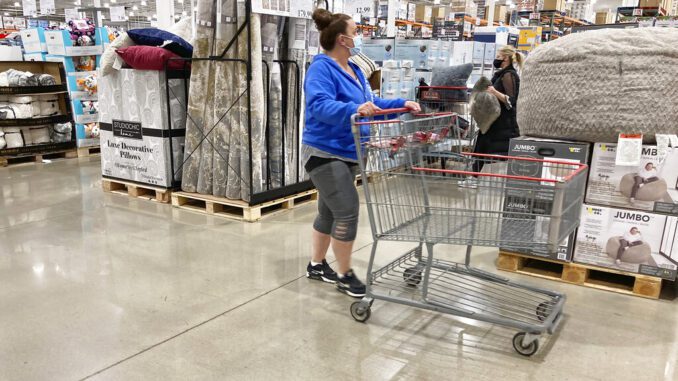
As we approach the Christmas season, Americans are once again looking at their budgets to see what presents they can afford. With rising inflation, many will struggle to make ends meet while covering the additional costs associated with the holidays.
What most Americans don’t know is that a protectionist policy included in many of our trade agreements with other countries keeps the cost of clothes and shoes high, making these products more expensive for families. This time of year, American families could use a break. If Congress wants to help decrease the cost of everyday goods, they should fix this failed policy known as the “yarn forward rules of origin.”
The Washington Post explained it well, “America doesn’t make much clothing anymore. But the government doesn’t act like it: We throw up trade barriers on imported goods from baseball caps to socks, making them 10 to 30 percent more expensive.”
Despite the relatively small volume of apparel production in the United States, the textile and apparel industry remains one of the most protected sectors. This is because a few textile producers in Georgia, South Carolina and North Carolina have lobbied their elected officials extensively to ensure they maintain their monopolistic control over the textile industry.
Using their influence, these producers were able to include a “yarn forward rule of origin” requirement in agreements such as the Central American Free Trade Agreement (CAFTA), which was established to increase trade between the U.S. and Central America. This rule ensures that, in order to qualify for duty-free trade, apparel products have to use yarn produced wholly by a member country.
Senators in the textile-making South would not have supported the trade agreement without this protectionist policy. The irony of including this policy in a free trade agreement is this policy is inherently anti-free trade. These restrictions often make the textiles too expensive for companies, who also have to navigate the complex set of rules and regulations included in the agreement — all to protect the big U.S. players in the textile industry. Given this landscape, importers typically find it easier and cheaper to import the textile products from China and pay the duty costs.
The statistics show this policy has failed to increase apparel imports into the U.S. from members of the agreement and has not moved apparel production to the Western Hemisphere, as it was originally designed to do. U.S. apparel imports from CAFTA-DR member countries have decreased $1.6 billion since 2005, when the agreement went into effect. China is still the No. 1 supplier of clothes to the United States.
If lawmakers updated the “yarn forward rule of origin” in CAFTA-DR to allow apparel producers to use diverse materials from textile suppliers, countries in the agreement would be able to produce a wider variety of apparel products at a lower cost. This would mean cheaper prices for American consumers for items like clothes and shoes.
Unfortunately, the Biden administration recently reiterated their support for this failed policy, saying the rule of origin requirement “promotes economic opportunity for both U.S. workers and those in the region.” In reality, this protectionist policy has created jobs in China while making apparel products more expensive for American families. Free trade has proven to be the most effective strategy to decrease the cost of everyday goods. In this holiday season, I hope our elected officials will ignore the powerful lobby of the textile industry and put the needs of everyday North Carolinians first.
Bobby Hurst is a former Fayetteville City Council member, serving from 2007-2017.

